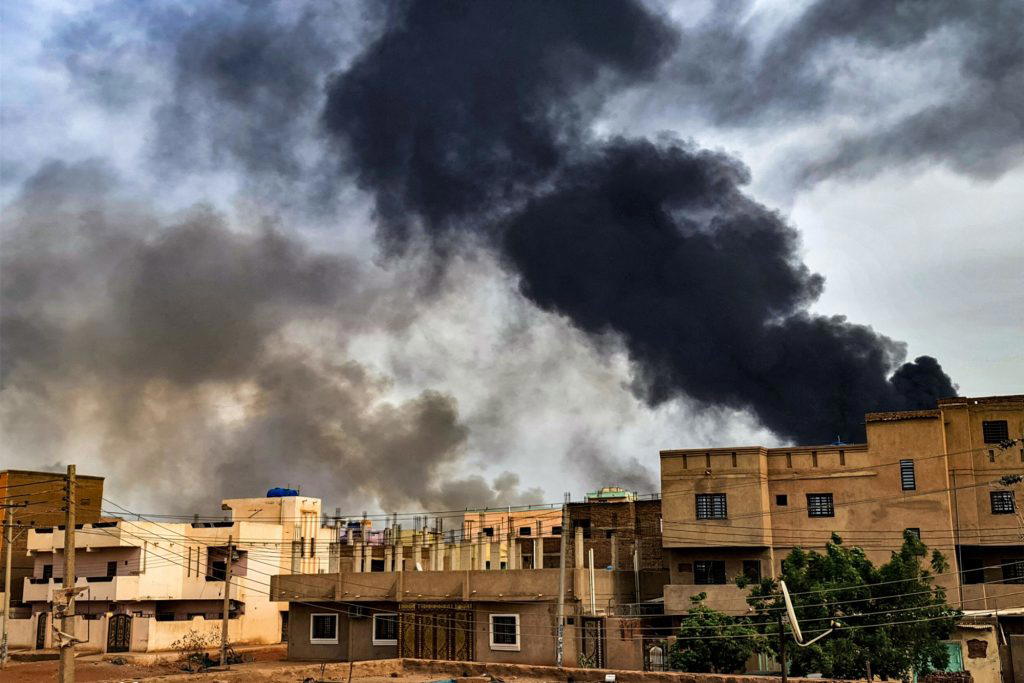SUDAN WAR: Fresh concerns over arms embargo

…as Amnesty International demands stricter oversight of global arms industry
By Dickson Omobola
Following a report by an American daily newspaper, The Washington Post, that an arms company in the Middle East is escalating conflict in North-East Africa by sending secret shipments of drones and missiles to one of the countries’ army, fresh concerns have emerged over breaches of the international arms embargo.
The fears surfaced after a global human rights organisation, Amnesty International, AI, 2024 report gained public attention.
The rights organisation, in its 2024 report titled: ‘New Weapons Fuelling the Sudan Conflict,’ fingered countries in Asia, Eastern Europe and South East Europe for the inability to end growing tension in North-East Africa.
On March 7, 2025, The Washington Post published findings that appeared to support Amnesty’s claims, reporting that a “trove of documents and communications” showed a Middle Eastern company covertly funnelled drones and missiles to one of the armies involved in the conflict.
Meanwhile, the AI report noted that “since the escalation of the conflict in April 2023, Sudan has been engulfed in a massive human rights and humanitarian crisis. The fighting between the Sudanese Armed Forces, SAF, and the Rapid Support Forces, RSF, and their allies has killed over 16,650 people and displaced millions of others making Sudan the largest internal displacement crisis globally.
“All parties to the conflict are using a wide variety of arms to commit serious violations of international human rights and humanitarian law, in some instances amounting to war crimes and crimes against humanity. This conflict is being fuelled by an almost unimpeded supply of weapons into Sudan by states and corporate actors around the world.
“Nearly all neighbouring countries are used by various armed groups and states as supply lines to transfer weapons into and around Sudan. The response of the international community, and particularly the UN Security Council, UNSC, has been woefully inadequate. The current UN arms embargo is both too narrowly focused – covering only the Darfur region – and too poorly implemented to have any meaningful impact on curbing these weapons flows.”
The report further went on to state that “despite the substantial risk that arms could be used for serious violations of international human rights and humanitarian law, states continue to transfer weapons to Sudan. Amnesty International’s Evidence Lab and the Digital Verification Corps were able to identify numerous instances of recently manufactured weapons being used by various parties to the conflict in Sudan. In some cases, shipment-level trade data provides useful details about the nature of the transfers, or the entities involved in them.”
Listing the weapons, among others, AI stated “BRG 55 ‘sporting’ rifles, 12GA hunting shotguns, tigr designated marksman rifles, SAIGA-MK series rifles and molot rifles.”
In its recommendations to all countries sending arms and ammunitions, AI urged: “Immediately cease supplies of all arms and ammunition to Sudan, including the direct or indirect supply, sale or transfer of arms and military materiel, related technologies, parts and components, technical assistance, training, financial or other assistance.
“Urgently investigate the transfer of weapons aimed at the civilian market, such as shotguns, hunting rifles, blank guns and related ammunition, to parties to the conflict, and ensure all these weapons are explicitly covered by national arms control regimes, and that all future transfers to Sudan are prohibited.
“Take all measures necessary to regulate the arms industry by implementing rigorous licensing procedures for the export, transit and import of arms on a case-by-case basis, including full details of the brokers, transporters, and financiers involved in each transaction, whereby a license is only issued if the proposed arms transfers will not be delivered or diverted to Sudan. In this regard, companies should be required to conduct and share the findings of their human rights due diligence to receive a license to transfer arms as a matter of national legislation.
“Take all measures necessary to prevent the diversion of arms, including by exercising extreme caution in relation to arms transfers to the wider region, and through information sharing, investigation and law enforcement.”
The post SUDAN WAR: Fresh concerns over arms embargo appeared first on Vanguard News.







